College Sports
House v. NCAA settlement fundamentally alters college athletics, but don't expect it to bring stability
The House vs. NCAA settlement is finally approved, and college football’s operating structure is forever transformed. Schools will pay athletes directly with most Power Four football programs expected to distribute at least $14-16 million annually. There are new roster caps. There’s now a clearinghouse responsible for determining fair market value with NIL deals. The […]
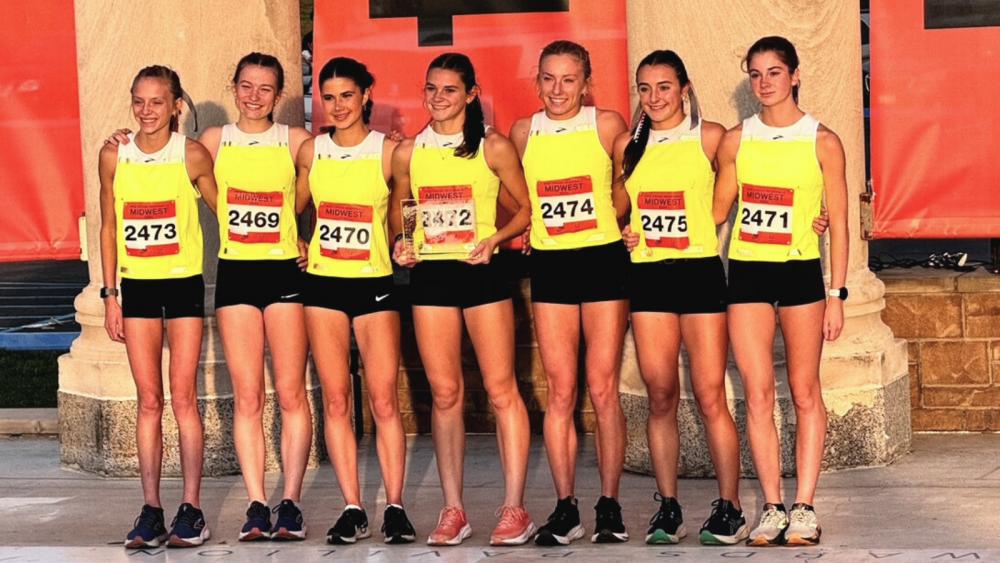
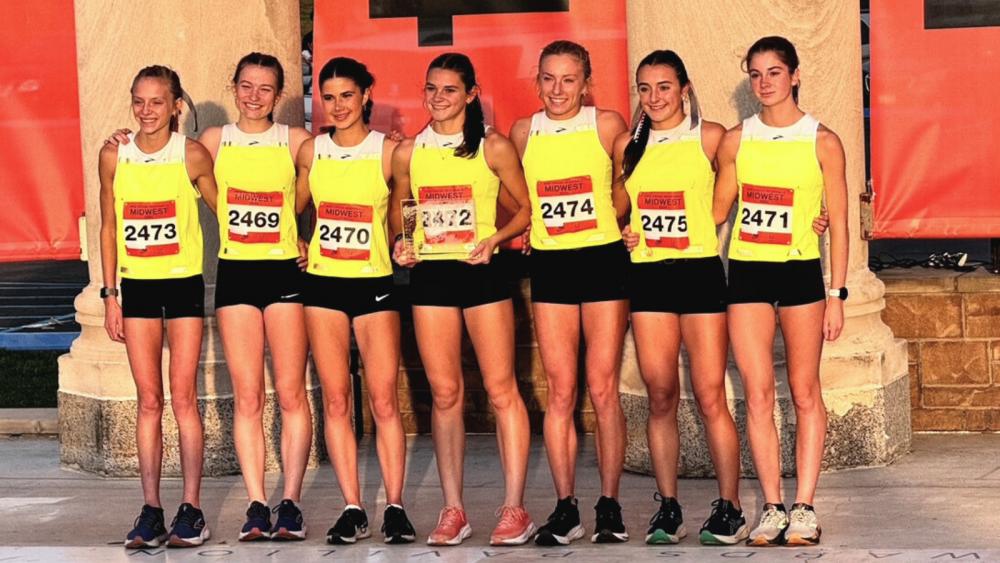
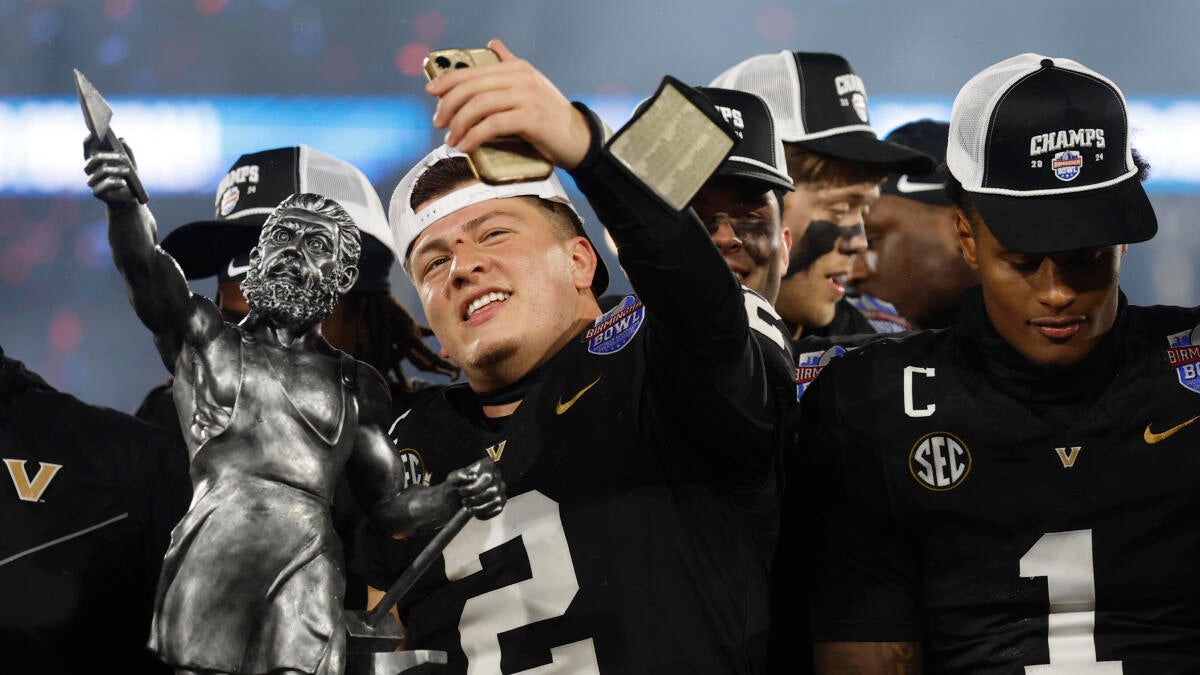
The House vs. NCAA settlement is finally approved, and college football’s operating structure is forever transformed.
Schools will pay athletes directly with most Power Four football programs expected to distribute at least $14-16 million annually. There are new roster caps. There’s now a clearinghouse responsible for determining fair market value with NIL deals.
The changes are designed with the intent to bring stability and circumvent future lawsuits. So, no more chaos, right?
Right …?
RIGHT!?
The bad news
If you believe that I have some oceanfront property in Arizona that you can get for a great deal. College athletics may be entering a new era, but the same issues that have caused anarchy in college football over the last half decade are foundational elements of the sport’s governing structure.
The NCAA still lacks an anti-trust exemption.
The NCAA nor its member schools collectively bargain with their athletes.
Lacking one or both of those elements means any changes that come with House are stopgap measures — flimsy walls constructed to stem a tide of change that continues to erode the old structure of the sport.
“All these rules are … very arbitrary and are not bargained with the players,” said Darren Heitner, a sports attorney with a large presence in the NIL space. “Until the NCAA decides to treat the players as employees or a unit to bargain with, they’re going to be stuck with challenges on their anti-trust law.”
I’ll see you in court
Remember, those lawsuits — from states and athletes alike — are the mechanisms that pushed the NCAA further and further away from its amateurism North Star.
The NCAA didn’t allow athletes to make money off their name, image and likeness. So, California passed a law that made it legal for colleges in that state to pay their athletes. That piece of legislation set off dominoes nationally and eventually forced the NCAA to adopt similar rules.
When the NCAA attempted to enforce its rules surrounding NIL — like boosters striking a deal with an athlete or a collective negotiating with an athlete before he enrolled — a state government once again enacted pressure.
Tennessee’s attorney general sued on behalf of the Nico Iamaleava and the Vols, who were under NCAA investigation for rule violations dating back to Iamaleava’s recruitment. That suit was successful and essentially broke the NCAA’s NIL enforcement mechanism, rendering the association almost powerless to control the obvious rule breaking that continues to occur.
Athletes pushed the NCAA through the courts, too.
Lawsuits shifted the NCAA’s transfer rules, creating an environment where players can change schools as often as they’d like in their careers. Challenges to the NCAA’s eligibility rules from those like Diego Pavia have shattered the NCAA’s long-held stance that players only receive four seasons of eligibility across five total years.
Legislation aimed at the NCAA’s potential anti-trust violations has been successful again and again this decade.
The House Settlement isn’t going to stop athletes from attempting to force change in the courtroom.
The House Settlement puts an annual cap on how much schools can pay their athletes via revenue sharing. The settlement also attempts to dictate who determines fair market value on NIL deals. Athletes will almost assuredly test those restrictions in court.
“There will definitely be more lawsuits on that issue,” said attorney Mit Winter, a lawyer who works heavily in the NIL space. “The rules that are coming out of the House Settlement don’t have any anti-trust protections.”
It only takes one desperate school to push the boundaries of fair market value. If you don’t think a school will get creative — i.e. break the rules — to find an extra $500,000 for a five-star recruit, you are probably one of those people who believes wads of cash show up in a McDonald’s bag during a recruiting trip by accident.
Schools do whatever it takes to get an edge. If their mechanism for landing a high-profile recruit is limited by a pseudo salary cap, you can bet a lawsuit won’t be far behind attempting to bust that rule.
The NCAA doesn’t have an anti-trust exemption that protects it from those challenges. Artificially placing a cap on someone’s salary is generally considered anti-competitive in America. That won’t change under the rules of the House Settlement even if a governor on compensation makes sense for the overall competitiveness of the sport.
In fact, several states, like Tennessee and New Jersey, have enacted state laws that prevent the NCAA from penalizing its schools for paying NIL to its athletes.
Eligibility lawsuits won’t stop either. Even if the NCAA at some point allows players five full seasons of eligibility, what prevents a player who just had his eligibility expire under the old rules to sue for the ability to return to the sport for another year?
There will be probable challenges on the grounds of Title IX, especially when you consider the large majority of schools participating in the House Settlement will funnel the majority of their rev share money to men’s sports.
That’s the thing about the House Settlement. Yes, it transforms the way college athletics operates and pushes it toward a near professional model. But the key word there is “near.” The NCAA is still operating a business based on the principle that its labor force isn’t technically labor. Athletes are not employees of the school. They lack the ability to collectively bargain.
The House Settlement does nothing to change that. If anything, it might embolden further challenges to the rules given how successful that strategy has proven over the last few years.
College Sports
Florida Gators donor Gary Condron wants to see ‘guardrails’ for NIL
USA TODAY Sports spoke with more than 10 boosters at high profile power conference schools about NIL, and only two talked on the record. One of them was University of Florida booster Gary Condron, the largest single financial donor in the history of Gator Boosters, Inc. USA TODAY Sports also interviewed and profiled Texas Tech […]

USA TODAY Sports spoke with more than 10 boosters at high profile power conference schools about NIL, and only two talked on the record. One of them was University of Florida booster Gary Condron, the largest single financial donor in the history of Gator Boosters, Inc.
USA TODAY Sports also interviewed and profiled Texas Tech billionaire booster Cody Campbell, who is working to reform the NIL space and “save college sports”, writes Matt Hayes. Hayes spoke to Condron about the current state of name, image and likeness.
“NIL space for boosters is like throwing money into a deep, dark hole with little to no return on the investment,” Condron said. “Nobody likes this. Not athletic directors, not coaches, not boosters. The only ones who like it are the players, and the attorneys and agents.”
Condron, 67, was a walk-on baseball player at Florida in the mid-1970s and graduated from UF in 1977 with a degree in building construction. He’s the CEO and founder of The Conlan Company, one of the leading builders for Amazon’s distribution centers around the country.
In addition to his support for Gator Boosters, Inc., Condron has helped fund the rosters for football, men’s basketball, baseball and other UF sports. He recently donated $1 million to Todd Golden’s program after his team won the 2025 national championship and the SEC Tournament.
“Gary’s been incredibly impactful on our success. I’m pretty sure, for football, baseball. He’s done a lot for all these different programs. Gary deserves a ton of credit for the success, because players are incredibly important,” Golden said of Condron after the title celebration at halftime of the spring football game.
“Gary gave us a great gift – and the reality of it is we need a lot more. We need a lot more to retain our players.”
Golden, who also thanked several other donors for their contributions, was able to retain his top frontcourt players and also signed one of the nation’s best transfer classes with three top-100 signees, adding a total of five players to the backcourt with a pair of top-50 recruits.
Condron’s efforts also helped Florida football coach Billy Napier close strong in the 2025 recruiting cycle and UF baseball coach Kevin O’Sullivan reload with his 2025 class, which currently consists of nine transfers and 12 recruits, including Jaden Bastian, Aaron Watson and Jordan Yost.
During his interview with USA TODAY Sports, Condron recalled working multiple jobs to pay his way through college. That process, Condron told Hayes, gets lost in today’s landscape with players getting paid and walk-on spots being eliminated. He would like to see some NIL reform happen.
“I came from a family that didn’t have two nickels to rub together,” Condron said. “If I had an opportunity to eat at the training table (at Florida) it was a blessing for me. If you saw what kids get today, the hair on your neck would stand up. I don’t know how much longer I can (fund NIL) unless we get some guardrails.”
College Sports
Official Site of The ECHL
Reading, Pa. – The Reading Royals, ECHL affiliate of the National Hockey League’s Philadelphia Flyers and American Hockey League’s Lehigh Valley Phantoms, announced that forward Connor McMenamin has re-signed for the 2025-26 season. McMenamin, 26, is entering his second-full professional season after a 17 point (7g-10a) showing in a 29-game shortened rookie campaign due to a […]
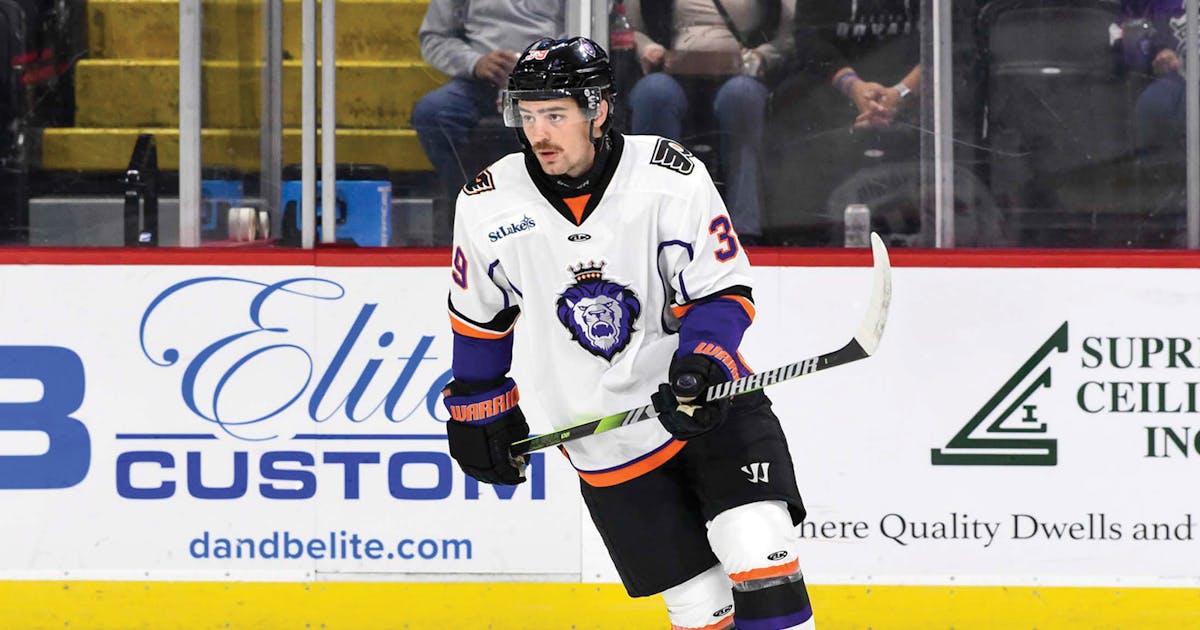
Reading, Pa. – The Reading Royals, ECHL affiliate of the National Hockey League’s Philadelphia Flyers and American Hockey League’s Lehigh Valley Phantoms, announced that forward Connor McMenamin has re-signed for the 2025-26 season.
McMenamin, 26, is entering his second-full professional season after a 17 point (7g-10a) showing in a 29-game shortened rookie campaign due to a season-ending injury. McMenamin played 10 games for Reading during the 2023-24 season after he inked a contract with the Royals to begin his professional career on March 22.
Prior to going pro, he played five seasons of college hockey with four seasons at Penn State University and a fifth-year graduate season at the University of Minnesota-Duluth. With the Bulldogs during the 2023-24 season, McMenamin recorded 21 points (6g-15a) in 35 games. From 2019-23 at Penn State, he he recorded 66 points (24g-42a) in 129 games played with the Nittany Lions. Across his five-year NCAA career, McMenamin totaled 87 points (30g-57a), 57 penalty minutes and a +10 rating in 164 NCAA career games.
Additionally, McMenamin was an alternate captain for Penn State in the 2021-22 and 2022-23 campaigns. He previously played in the United States Hockey League, primarily with the Tr-City Storm where he was captain in the 2018-19 season.
College Sports
New NIL enforcement targets collectives, deals must serve ‘valid business purpose’
A new college sports enforcement arm charged with regulating name, image and likeness payments to athletes issued guidance Thursday that could make it extremely difficult for school-affiliated collectives to get their deals with athletes approved. The recently approved House settlement, which took effect on July 1, established a clearinghouse, called NIL Go, that must approve […]

A new college sports enforcement arm charged with regulating name, image and likeness payments to athletes issued guidance Thursday that could make it extremely difficult for school-affiliated collectives to get their deals with athletes approved.
The recently approved House settlement, which took effect on July 1, established a clearinghouse, called NIL Go, that must approve all third-party deals for more than $600. The two main requirements for those deals are that they’re for a “valid business purpose” and within a fair-market “range of compensation.”
The goal is to prevent schools from utilizing booster-driven entities to funnel payments to recruits and transfers as a workaround to the $20.5 million revenue-sharing cap.
Guidance issued Thursday by the College Sports Commission said that “an entity with a business purpose of providing payments or benefits to student-athletes or institutions, rather than providing goods or services to the general public for profit, does not satisfy the valid business purpose requirement set forth in NCAA Rule 22.1.3.”
It then cited as an example a collective that “reach(es) a deal with a student-athlete to make an appearance on behalf of the collective at an event, even if that event is open to the general public, and the collective charges an admission fee (e.g., a golf tournament).” And, “The same collective’s deal with a student-athlete to promote the collective’s sale of merchandise to the public would not satisfy the valid business purpose requirement for the same reason.”
A message Thursday seeking comment from The Collective Association was not immediately returned.
In the four years since NIL took effect in 2021, collectives affiliated with specific schools have made hundreds of millions in deals with athletes just like those described in the examples. They pool funds from donors and boosters and use them to license the NIL rights of specific athletes in exchange for appearances and social media posts.
College sports leaders have long lamented that those deals are de facto pay-for-play inducements, not legitimate endorsement deals.
“For somebody to just slide you a few dollars because they want you to come or stay at a certain school and call it NIL, that’s make-believe, that’s not a real thing,” Purdue athletic director Mike Bobinski recently told NBC Sports.
Critics, though, believe any attempt to restrict how much athletes can make and by whom will eventually be declared another antitrust violation, much like several recent decisions that went against the NCAA. One distinction is that CSC and NIL Go were created by the Power 5 conferences, not the NCAA.
Ohio State made headlines last year when it disclosed that its football roster was earning a combined $20 million, most of it coming from one of two Buckeye collectives. Roster payrolls at the top programs have since escalated well beyond $20 million. Knowing the House settlement was coming, many collectives “frontloaded” payments for this coming school year so they would not be subject to clearinghouse approval.
In a series of posts on X on Thursday, Dalton K. Forsythe, director of Utah State’s Blue A Collective, criticized NIL Go for technical issues, then said, “We’re hearing from peers across the country: nearly 100 percent of collective-backed NIL deals are being denied, regardless of size or structure.”
He continued, “The College Sports Commission has taken the position that collectives cannot serve a ‘valid business purpose’ — a standard that was never clearly communicated before implementation.”
(Photo: Kirby Lee / USA Today Sports)
College Sports
UMaine hockey adds new assistant coach with NCAA championship pedigree
The University of Maine men’s ice hockey team announced a new assistant will be joining head coach Ben Barr’s staff this coming season. Rick Bennett, who led Union College to an NCAA Division I championship in 2014, is bringing more than 20 years of college coaching experience to the Black Bears bench. UMaine formally announced […]

The University of Maine men’s ice hockey team announced a new assistant will be joining head coach Ben Barr’s staff this coming season.
Rick Bennett, who led Union College to an NCAA Division I championship in 2014, is bringing more than 20 years of college coaching experience to the Black Bears bench. UMaine formally announced his hiring Thursday afternoon.
“Rick is one the most genuine people I’ve ever met,” Barr said in a press release. “Maine Hockey is fortunate to have him on staff.”
The addition marks a reunion of sorts for Barr and Bennett, who served together as assistants at Union under then-head coach Nate Leaman. Barr followed Leaman to Providence College in 2011 and Bennett became the Union head coach.
Bennett served as head coach at Union until his resignation in 2022 after an allegation and subsequent investigation regarding his coaching style and practices. He served as an assistant coach at Quinnipiac University last season after coaching the Savannah Ghost Pirates in the ECHL, a professional developmental league for the AHL and NHL.
He joins a UMaine program that went 24-8-6 last season, the program’s best record since the 2003-04 campaign. The Black Bears finished in the top 10 of both major national hockey polls.
College Sports
Auburn will not match Alabama Football recruiting but Hugh Freeze may be right
Alabama football fans have had recent fun bashing Hugh Freeze and Auburn Athletic Director John Cohen. The pair claimed that after Aug. 1, Auburn’s recruiting success will blossom as many current commits flip from other schools. The flips will be the result of recruits learning from written offers that promised dollars may not be real. […]

Alabama football fans have had recent fun bashing Hugh Freeze and Auburn Athletic Director John Cohen. The pair claimed that after Aug. 1, Auburn’s recruiting success will blossom as many current commits flip from other schools. The flips will be the result of recruits learning from written offers that promised dollars may not be real. Freeze stated, “We’ve got great interpretations from our administration and our legal team on what the (House) settlement really means and how we should operate, and that’s what we’re doing. And if others are operating in a manner not with that, I’m hopeful that they’ll be called out on that at some point.”
Alabama fans have good reason to scoff. Freeze and Auburn have a considerable history of rule-breaking. Auburn may have hit the brakes on college football’s spending spree because the school’s resources have been depleted. That doesn’t mean that Freeze’s and Cohen’s comments were wrong.
Freeze and Cohen are right to suggest there should be a reckoning across college football’s biggest spenders. Still, expecting clarity to happen quickly or smoothly is unrealistic. During Big 12 Media Days, multiple coaches mentioned general confusion about player compensation and the struggles of the College Sports Commission to enact enforcement measures and approve NIL deals.
Yahoo’s Ross Dellenger began the title of a recent story with “We don’t know the rules”. Dellenger was expounding on what he had heard from Big 12 coaches. Check out some comments below.
- “We don’t know the rules. The settlement passed, but who knows what Deloitte is going to clear. Until there is clarity, you’re living in limbo.”
- “You are seeing a lot of people lie and promise fake things.”
After talking to multiple coaches, Dellenger concluded, “Schools are making big enough contract offers to recruits that they cannot possibly remain under college football’s new compensation cap, some coaches believe. Others are guaranteeing third-party NIL deals as part of the total compensation package to athletes, something against new revenue-share rules. A few are doling out cash from their collectives to high school players in an attempt to induce their commitment, also against new rules.”
Lawyers and conference administrators are working to codify the new enforcement process. Understandably, the effort is progressing slowly. The NIL Go Clearinghouse is also lagging in approving submitted deals, with a reported 60-plus percent of deals in limbo.
Alabama Football’s Kalen DeBoer has been quiet, but other SEC coaches have not
Hugh Freeze has not been the only SEC football coach to be vocal about the problems. As reported by Dellenger, Kirby Smart stated, “Some school-affiliated booster collectives are currently compensating high school players — upward of $20,000 a month — to remain committed and eventually sign with their school.” Additionally, most NIL deals promised to recruits and transfers have not been approved by the clearinghouse.
Quick clarity on new rules, enforcement, and penalties was a pipe dream. It was always going to be a muddled situation that would take at least months to resolve. While Auburn will not suddenly zoom up recruiting rankings in August, Alabama football fans might once want to cut Freeze some slack. He was not wrong in claiming that programs are gaming the new system.
College Sports
What did you do this summer? One of our AMCATS won silver with Team Canada
This summer Anna Maria College Men’s Ice Hockey goalie Matthew Hennessey represented Team Canada in the 2025 ISBHF U23 Ball Hockey World Championships in Hradec Kralove, Czechia. Hennessey tended the net in four games for Canada, helping the team win Silver in the Championship game against Czechia. While in net, Hennessey made 80 saves with an 89.89 […]

This summer Anna Maria College Men’s Ice Hockey goalie Matthew Hennessey represented Team Canada in the 2025 ISBHF U23 Ball Hockey World Championships in Hradec Kralove, Czechia.
Hennessey tended the net in four games for Canada, helping the team win Silver in the Championship game against Czechia. While in net, Hennessey made 80 saves with an 89.89 SV% and a 3.03 GAA earning himself Best Goalie of the tournament.
Matthew will be returning to Paxton this fall for his third season with the AMCATS after helping the team reach their most successful season in program history.
Read more here.
-

 Technology2 weeks ago
Technology2 weeks agoPet fitness and wellness trends for a healthier and happier dog
-

 College Sports2 weeks ago
College Sports2 weeks agoWAC to Rebrand to UAC, Add Five New Members in 2026
-
College Sports3 weeks ago
Women's Basketball Thanks Shannon LeBeauf for 14 Seasons
-

 Motorsports1 week ago
Motorsports1 week agoWhy Cosmetics are Making Up for Lost Time in Women’s Sports
-
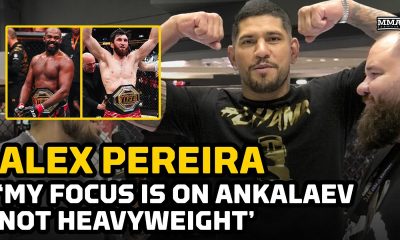
 Professional Sports3 weeks ago
Professional Sports3 weeks agoAlex Pereira responds to rumors of UFC heavyweight title fight with threatening message
-

 College Sports3 weeks ago
College Sports3 weeks agoAlabama Basketball
-

 Professional Sports3 weeks ago
Professional Sports3 weeks agoFrancis Ngannou sends Dana White a message following Jon Jones' shock UFC retirement
-

 College Sports2 weeks ago
College Sports2 weeks agoA new era of Dickinson hockey begins behind the bench – The Dickinson Press
-

 Motorsports2 weeks ago
Motorsports2 weeks agoNASCAR This Week – Patriot Publishing LLC
-
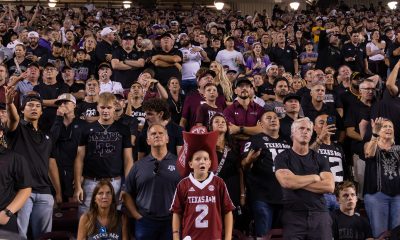
 Sports3 weeks ago
Sports3 weeks agoSEC Conference imposing a fine will create the opposite effect.






























